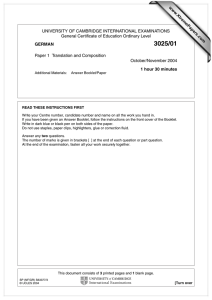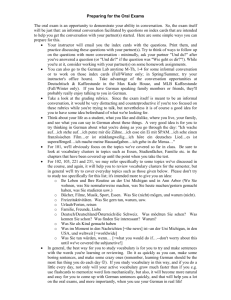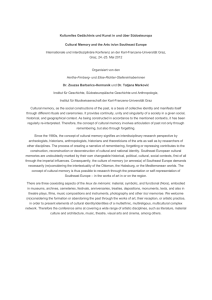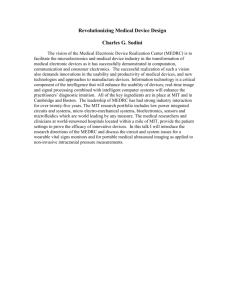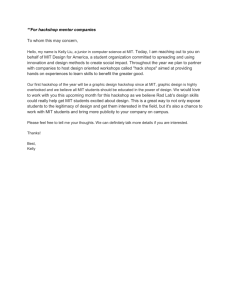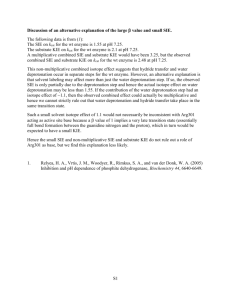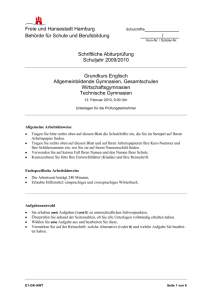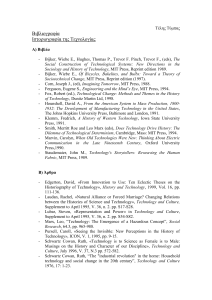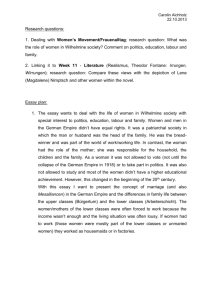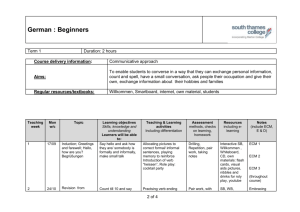Workshop 2 - German Teachers` Association of Ireland
advertisement
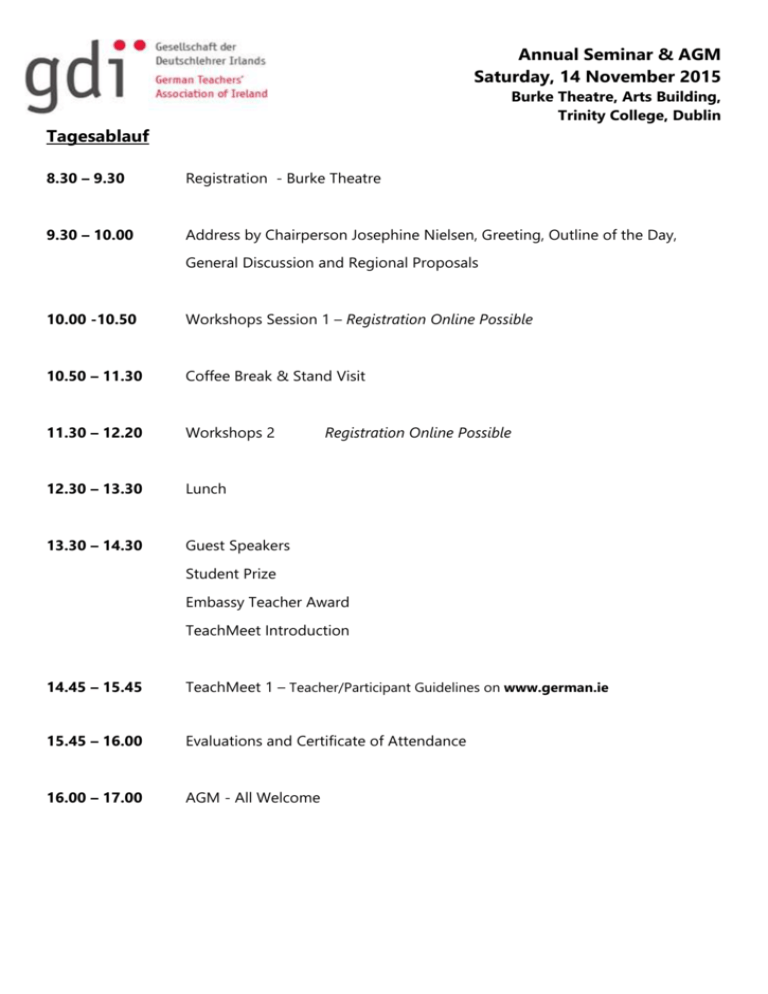
Annual Seminar & AGM Saturday, 14 November 2015 Burke Theatre, Arts Building, Trinity College, Dublin Tagesablauf 8.30 – 9.30 Registration - Burke Theatre 9.30 – 10.00 Address by Chairperson Josephine Nielsen, Greeting, Outline of the Day, General Discussion and Regional Proposals 10.00 -10.50 Workshops Session 1 – Registration Online Possible 10.50 – 11.30 Coffee Break & Stand Visit 11.30 – 12.20 Workshops 2 12.30 – 13.30 Lunch 13.30 – 14.30 Guest Speakers Registration Online Possible Student Prize Embassy Teacher Award TeachMeet Introduction 14.45 – 15.45 TeachMeet 1 – Teacher/Participant Guidelines on www.german.ie 15.45 – 16.00 Evaluations and Certificate of Attendance 16.00 – 17.00 AGM - All Welcome Workshops for Teachers Register for two Workshops on www.germanteachers.ie https://www.eventbrite.ie/e/gdi-annual-conference-tickets-19389189588 Please note the Workshops begin in the Morning Session Workshop 1: Springboard to TY and Beyond! Room 3027, 1st Floor, Arts Building Claire Matthews [Advisor PDST] This workshop will focus on practical teaching and learning methodologies to support students of MFL in Transition Year and into Senior Cycle. There will be an emphasis on active learning as well as the integration of ICT, all of which are transferable to other year groups and contexts. Workshop 2: „Moderne Lernsoftware“ Technologien im Klassenzimmer/Apps, Twitter, Room 3051, 1st Floor, Arts Building Frau Mag. Barbara Mairleitner Digital Storytelling - Multimediales Erzählen im DaF-Unterricht: „Digital Storytelling“ verbindet die uralte Kunst des mündlichen Geschichtenerzählens mit dem Einsatz multimedialer Technologie. Die Lernenden erzählen eine Geschichte aus ihrem Leben und dokumentieren diese in einem kurzen Video. Dabei kommen Fotos, Videos, Graphiken, die eigene Stimme und maximale sprachliche und emotionale Leistung zum Einsatz. Es entstehen „echte“ Geschichten mit einer starken Botschaft, die die Fertigkeit Sprechen fördern, die Gruppendynamik fördern und stolz machen. Nach einem Kurzvortrag und der Präsentation eines Unterrichtsbeispiels werden Sie selbst eine Mini-Digital Story erarbeiten. Damit Sie in der kurzen Workshopzeit effizient arbeiten können, bringen Sie bitte Folgendes mit: - einen Laptop oder ein Tablet mit einem Videobearbeitungsprogramm (z.B. MovieMaker (Windows), iMovie (Apple), etc.) - ein kurzes (unkompliziertes!) Video mit einer persönlichen Geschichte zum Thema: Das schönste Erlebnis in meinem DeutschlehrerInnendasein ODER: Das schrecklichste Erlebnis in meinem Deutschlehrerinnendasein. * Das Video soll 40 bis maximal 60 Sekunden lang sein * Sie können es mit dem Handy, Tablet, Ihrer Digitalkamera o.ä. aufnehmen. * Es wäre schön, wenn Sie auf dem Video zu sehen sind, also vor laufender Kamera Ihre Geschichte erzählen. Sie müssen aber nicht unbedingt zu sehen sein, wenn Sie das nicht wollen. * Auf alle Fälle muss aber Ihre Stimme zu hören sein! SIE sollen IHRE Geschichte erzählen! - Bringen Sie Ihre Geschichte auf USB-Stick, Speicherkarte o.ä. zum Workshop mit! Danke! Workshop 3: ICT uses in the Classroom Room 3071, 1st Floor Arts Building Post Primary Languages Initiative (PPLI) Kenia Puig Planella This session will present 3 free ICT tools for language teachers. I will introduce these tools and give practical ideas of how they can be used in the classroom and as a resource for teachers. Padlet is an online, electronic “wall” where students can post comments or answer questions for the entire class to see and respond to. The possibilities are endless since the link can be shared with students who can easily access the wall electronically in class or from home. The teacher can upload videos, photos or documents. Blendspace allows teachers to create interactive lessons with multiple resources in a few minutes. It is a great tool to promote differentiation and for projects. Blendspace can also be used for teachers to collect a variety of resources by topic. In Blendspace you can also access other teachers’ resources and lessons. Blendspace has built–in assessment and lesson tracking which allows teachers to monitor students’ performance. Plickers allows you to ask questions and get feedback from to the whole class without the need for student devices. Just give each student a card (a “paper clicker”), and use your phone to scan them to do instant checks-for-understanding, exit tickets, and impromptu polls. The results can be saved so you can track students’ progress. Workshop 4: New Role Plays (2017-2020) for the Leaving Certificate Room 3081, 1st Floor Arts Building Caroline Ahearne Suggestions and Tips for the New Roll Plays for the Leaving Certificate Workshop 5: New Picture Sequences (2017-2020) for the Leaving Certificate Oral Examination Room 3106, 1st Floor Arts Building Louise Reeves and Margit Bildergeschichte Preparation with two presenters, a native speaker and experienced examiner including follow up questions for the, Erklärungen, Zukunftspläne und Problemkreise. Workshop 6: Leaving Certificate Oral Exam: The Project Room 3126, 1st Floor Arts Building Barbara Capper Workshop 7: Fit in Deutsch Room 4047 2st Floor Arts Building Marlies McGuire – Goethe Institut Passing the Goethe-Zertifikat A1: Fit in Deutsch 1 examination proves that you can make yourself understood in simple German. The examination requires a basic knowledge of German. It corresponds to level one (A1) on the six-level scale of competence laid down in the Common European Framework of Reference for Languages. Aims: understand simple questions, notices and phone messages as well as information on the radio about an everyday situation and in brief conversations gather the main information from short written messages, advertisements, descriptions, letters and simple newspaper articles write brief personal messages introduce yourself in a conversation and answer questions about yourself ask and reply to simple questions in a conversation on topics affecting you make common requests and formulate questions in everyday situations, and reply or respond to these Workshop 8: Leargas and Erasmus + Room 4050 A, 2nd Floor Arts Building Eva Creely , Leargas Opportunities for schools to undertake international training and partnerships are available under the Erasmus Plus Programme. The priorities include the development of professional competences and the promotion of language skills. Teachers can be involved in international training courses, job-shadowing or teaching assignments. Schools can undertake projects with partner schools and organisations across Europe which involve visits, joint activities and the production of materials. Léargas is the National Agency for the Programme in Ireland and is interested in having applications from Irish schools for 2016. Workshop 9: Introducing German in a Taster System: Some Ideas Room 4050 B, 2nd Floor Arts Building Kim McCarney In this workshop you will get ideas for all the beginner themes for 1st year German. These include worksheets, powerpoints, songs and activities. These have been tried and tested and the students seem to love them. They can also be useful for TY German students who plan to give a taster class to the local primary schools.
